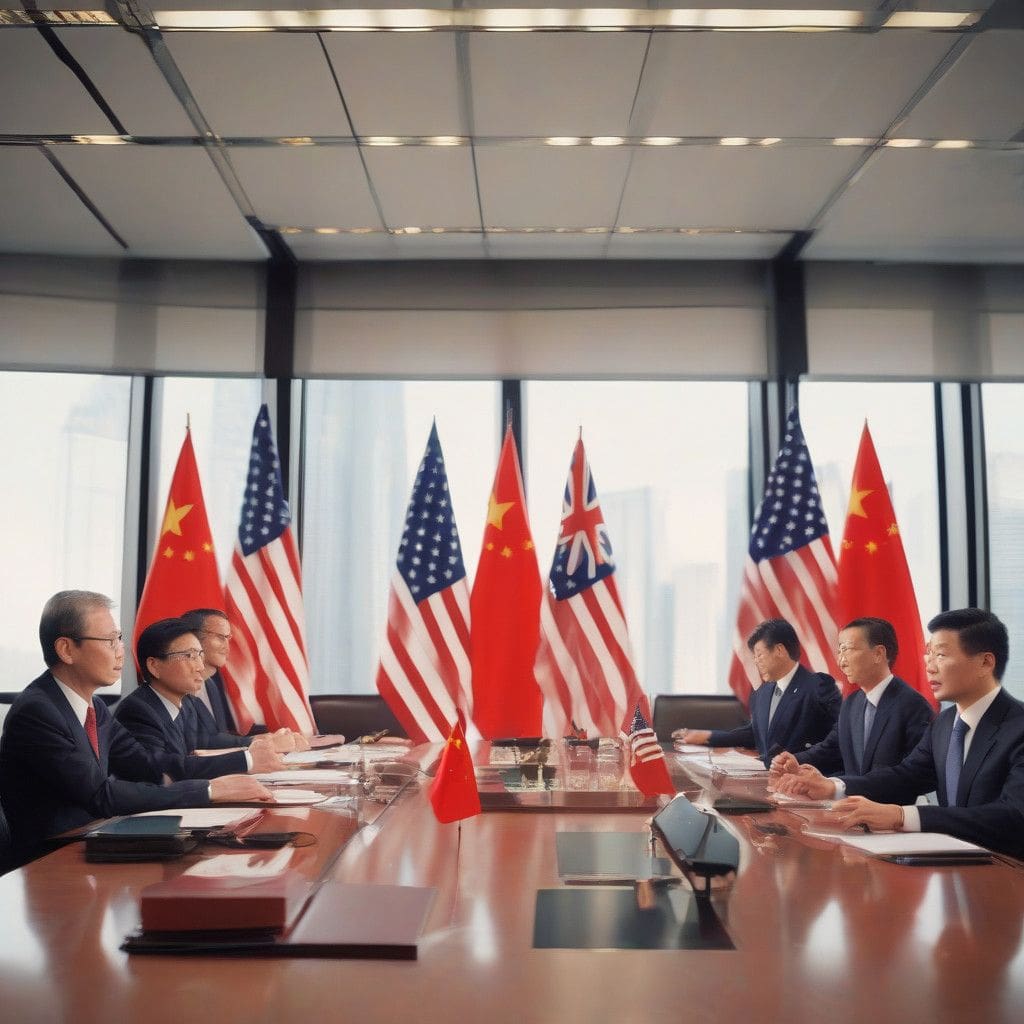In a significant diplomatic exchange that took place recently, China urged the United States to reconsider its sanctions on Chinese companies, particularly those involved in the semiconductor and intelligent connected vehicle sectors. This appeal underscores the necessity for a stable business environment that fosters cooperation between the two largest economies in the world.
During a meeting with U.S. Secretary of Commerce Gina Raimondo, China’s Minister of Commerce, Wang Wentao, articulated his concerns regarding the restrictions imposed by the U.S. government. He argued that the current state of trade relations is challenging and called for clearer national security policies. These policies, he contended, are crucial for maintaining the integrity and stability of global supply chains that are integral to various industries including electronics, automotive, and pharmaceuticals.
The importance of U.S.-China trade relations cannot be overstated. Analysts and business leaders agree that a robust partnership between these two nations can significantly reduce production delays and mitigate supply chain disruptions. As the global competition intensifies, collaboration is not just beneficial; it is essential for sustaining economic growth and development.
Despite the political turmoil characterized by upcoming elections in the U.S., there is a prevailing belief among experts that cooperation will persist. Many U.S. companies, which heavily rely on the Chinese market for their operations, are likely to advocate for more balanced trade policies. This indicates a recognition of the mutual benefits derived from a stable and cooperative trade relationship.
China has steadily positioned itself as an attractive destination for foreign investments, as evidenced by its ranking of third on the 2024 Kearney Foreign Direct Investment (FDI) Confidence Index. The index underscores the growing allure of China as a key market and innovation hub. Companies like Dun & Bradstreet and Skechers, among others, are expanding their operations in China, highlighting the strategic role it plays in global supply chains and its vast consumer base. Business leaders advocate for deeper U.S.-China trade connections, acknowledging the competitive advantages that collaboration can yield.
Further reinforcing the significance of these trade relations is recent trade data. The U.S. remains China’s third-largest trading partner, with a staggering trade volume of 3.15 trillion yuan (approximately $446.21 billion) reported in the first eight months of 2024. This data underscores the critical need for ongoing cooperation, especially in light of the challenges presented by a rapidly evolving global economic landscape.
The necessity for stable trade relations is paramount, particularly given the backdrop of rising geopolitical tensions and economic rivalry. The sanctions imposed by the U.S. have created uncertainty for businesses operating in both markets. Lifting these sanctions may not only stabilize the business climate but also encourage more significant investment flows, thereby accelerating economic recovery in both countries.
In conclusion, the call for lifting sanctions is not merely a political maneuver; it represents a pragmatic approach to ensuring long-term economic stability. The intertwined nature of the U.S. and Chinese economies means that both countries stand to gain from a collaborative approach to trade. As business leaders and analysts emphasize, fostering a stable and cooperative relationship between the U.S. and China is essential, not just for the sake of bilateral trade but for global economic prosperity.
China, with its extensive market and increasing appeal as an investment hub, offers significant opportunities that U.S. companies should not overlook. The world watches closely, and the actions taken by both nations will undoubtedly shape the course of global trade in the years to come.












